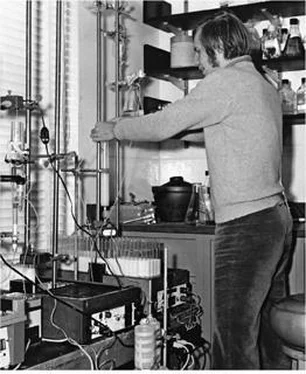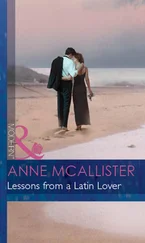James Watson - AVOID BORING PEOPLE - Lessons from a Life in Science
Здесь есть возможность читать онлайн «James Watson - AVOID BORING PEOPLE - Lessons from a Life in Science» весь текст электронной книги совершенно бесплатно (целиком полную версию без сокращений). В некоторых случаях можно слушать аудио, скачать через торрент в формате fb2 и присутствует краткое содержание. Жанр: Биографии и Мемуары. Описание произведения, (предисловие) а так же отзывы посетителей доступны на портале библиотеки ЛибКат.
- Название:AVOID BORING PEOPLE: Lessons from a Life in Science
- Автор:
- Жанр:
- Год:неизвестен
- ISBN:нет данных
- Рейтинг книги:5 / 5. Голосов: 1
-
Избранное:Добавить в избранное
- Отзывы:
-
Ваша оценка:
- 100
- 1
- 2
- 3
- 4
- 5
AVOID BORING PEOPLE: Lessons from a Life in Science: краткое содержание, описание и аннотация
Предлагаем к чтению аннотацию, описание, краткое содержание или предисловие (зависит от того, что написал сам автор книги «AVOID BORING PEOPLE: Lessons from a Life in Science»). Если вы не нашли необходимую информацию о книге — напишите в комментариях, мы постараемся отыскать её.
AVOID BORING PEOPLE: Lessons from a Life in Science — читать онлайн бесплатно полную книгу (весь текст) целиком
Ниже представлен текст книги, разбитый по страницам. Система сохранения места последней прочитанной страницы, позволяет с удобством читать онлайн бесплатно книгу «AVOID BORING PEOPLE: Lessons from a Life in Science», без необходимости каждый раз заново искать на чём Вы остановились. Поставьте закладку, и сможете в любой момент перейти на страницу, на которой закончили чтение.
Интервал:
Закладка:
The twins’ mother was planning a big party for their twenty-first birthday, to be held in their home in mid-October. I had hoped that my multiple letters and postcards from the Royal Hotel in Katmandu would secure me an invitation to be at either Sophia's or Thalassa's side for the big night. Alas, that did not come to pass, although I was invited and Franny graciously came as my date. At the party, the twins were somewhat upstaged by the elegantly tall sophomore Ann Douglas Watson, no relation, whose obvious social and intellectual superiority over the males her age made me wonder hopefully whether the promise of not having to change her name afforded me any advantage as a suitor. But the real catch at the party, all too clear to Mrs. Hencken, was Desmond FitzGerald, the future Knight of Glin, then over from Ireland to study art history at the Fogg Museum.
Soon after, the twins had Desmond invite me to a Saturday night party that he gave at his Massachusetts Avenue flat with Dorothy Dean. Her regal black-draped form often graced the lunch scenes at University Restaurant or Hayes-Bickford's and even more the largely gay evening crowds at Club Casablanca beneath the Brattle Theatre. In talking first to Thalassa, who professed ignorance about most of the other guests, I found my ear tuning into the opinionated, laughing voice of Abby Rockefeller, the youngest of the guests and the eldest daughter of David and Peggy Rockefeller. Instead of going on to college, Abby was studying the cello in Boston, living at a friend's home north of Harvard Square. So with my windowless MG now entrusted for the winter to Miss McCartney's Brattle Square garage, the next afternoon I walked up Brattle Street to the Churchill family residence to continue our spirited conversation of the night before. Over tea we concurred that no more than pennies would ever trickle down from the haves to the have-nots.By then my security clearance had materialized, and I was soon making regular flights to Washington as part of PSAC's new Limited War Panel. Its recent creation was PSAC's response to the ever growing American involvement in Vietnam. With the use of nuclear weapons ruled out ever since Eisenhower had decided not to so rescue the French at Dien Bien Phu, it was unclear how to keep South Vietnam from falling to the Viet Cong. No one on Bundy's staff thought a massive deployment of ground troops was the answer. Whenever their southern borders were truly threatened, the Chinese could supply more bodies as cannon fodder than any American president dared contemplate matching. Use of highly lethal chemical and biological agents was also a Rubicon the government had no wish to cross. So the army's chemical and biological warfare units were considering deployment of “incapacitating agents” that would put enemy soldiers out of action only temporarily. Secretary of Defense Robert McNamara apparently liked this idea, and PSAC's task was to give JFK an independent appraisal of their possible military feasibility.
The first new chemical agent I was to hear about was in fact a killer—but only of plants. Agent Orange was on the agenda of my first visit to the Executive Office Building, where the southeast side of the
third floor, once occupied by Secretary of State Cordell Hull, now contained PSAC's offices. Speaking to the full Limited War Panel, a Green Beret officer explained how spraying this herbicide along roadsides had cut down Viet Cong ambushes. Were his presentation a seminar, I would have questioned his lack of statistical analysis. But as a mere consultant, I thought it prudent to stay quiet at my first briefing by military officers. Later Vince McRae, PSAC's deputy handling limited war matters, let me know he never challenged the competence of officers during military briefings. This was for their superiors to do if they felt so inclined. PSAC's effectiveness on military matters depended upon the Department of Defense seeing the committee as a potential ally for bending the president to their will. Whether Agent Orange reduced ambushes was for the army alone to judge. PSAC's place was to judge whether the chemical's use posed any negative health consequences for the military personnel involved in herbicide spraying. But here again we were assured that such defoliants were no danger to humans.My conversation with Vince allowed me to find out where my glamorous Radcliffe friend Diana de Vegh was working in the White House. Soon learning that her office was on the floor above, I bounded up the stairs to find her in conversation with her boss, Marcus Raskin, a junior staff member of McGeorge Bundy's National Security Council. Earlier employed by the liberal Democratic congressman Bob Kastenmeier from Wisconsin, Marc was now the Security Council's token left-winger. Having Raskin around, Bundy believed, might afford him more than one type of option for handling a potentially tricky foreign policy dilemma. Much later I learned that Marc's earlier candor about Cuba had by then already put him out of the loop of important decision making. Diana, however, showed no awareness of her office's irrelevance to national security, elated by a helicopter ride over to the Pentagon earlier that day. As she already had plans for the evening, we agreed to have dinner on my next trip to Washington.
Also then a consultant to PSAC was my Harvard colleague E. J. Corey. A first-rate organic chemist, E.J. was to focus on chemical agents, while I handled biological ones. He would go to the Aberdeen Proving Grounds to check up on the Chemical Corps, and I would be
calling at Fort Detrick to get the inside skinny on our biological warfare programs. When E.J. and I later put together a report that had the potential to reach JFK, we used E.J.'s ultrasecure safe in the Converse Memorial Laboratory office to store the top-secret materials. Early on, we were briefed on corresponding Soviet efforts. We saw photos, most likely predating Gary Powers's U2 overflights, showing grid lines inter-pretable as Soviet biological and chemical weapon testing sites. By then the Soviets clearly had the capabilities to deploy deadly organic phosphate nerve toxins in the United States on a mass scale. But would they ever do so if they thought we might respond with a nuclear blast? Moreover, would any serious military establishment take the chance that a shift in wind direction might cause a cloud of nerve gas to drift over friends rather than the target?Much more urgently in need of serious PSAC review was the Chemical Corps’ incapacitant BZ, about which the corps was very enthusiastic. Volunteers exposed to it temporarily became zombie-like without apparent long-term consequences. Might this agent win battles without killing enemy soldiers? But in conditions of extreme heat, would individuals so drugged become fatally dehydrated? Even more worrisome, volunteers exposed to BZ initially experienced delusions reminiscent of those caused by LSD. So neither E.J. nor I saw BZ as a wise measure to neutralize the Viet Cong.
The evening before my first visit to biological warfare headquarters in Fort Detrick, I stopped over in Washington for the deferred supper with Diana de Vegh. We dined at the red-leather-upholstered Jockey Club in the Fairfax Hotel near Dupont Circle. It was the place for top executives and politicians to see or be seen, and nobodies were hard to find there during the dinner hours. Diana apparently expected less to see than to be seen, because she did not wear her glasses, without which faces farther away than mine were all a blur. Already part of the Georgetown “New Frontier” crowd, she avoided talk about JFK, focusing on her recent weekend with Secretary of the Treasury Douglas Dillon and his wife, Phyllis.
A power of a very different sort greeted me when I first arrived at the officers’ club of Fort Detrick. I was met by the civilian scientific director, the Texas-bred Riley Housewright. Long attached to the
Читать дальшеИнтервал:
Закладка:
Похожие книги на «AVOID BORING PEOPLE: Lessons from a Life in Science»
Представляем Вашему вниманию похожие книги на «AVOID BORING PEOPLE: Lessons from a Life in Science» списком для выбора. Мы отобрали схожую по названию и смыслу литературу в надежде предоставить читателям больше вариантов отыскать новые, интересные, ещё непрочитанные произведения.
Обсуждение, отзывы о книге «AVOID BORING PEOPLE: Lessons from a Life in Science» и просто собственные мнения читателей. Оставьте ваши комментарии, напишите, что Вы думаете о произведении, его смысле или главных героях. Укажите что конкретно понравилось, а что нет, и почему Вы так считаете.












